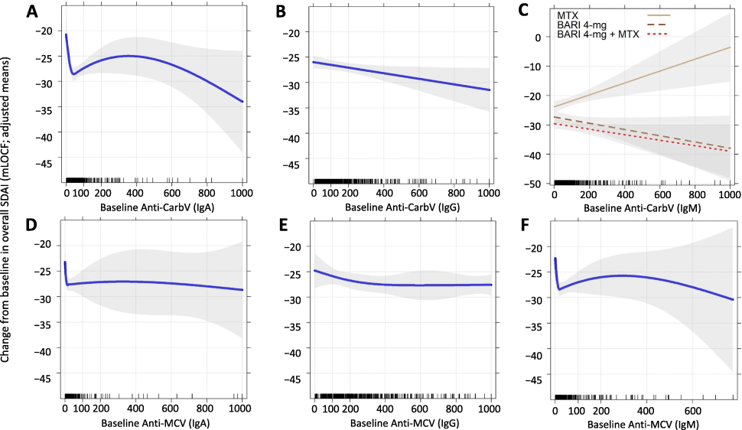Assessment of the association of baseline anti-CarbV and anti-MCV antibodies with response to treatment and radiographic progression in an RA population treated with either methotrexate or baricitinib: post-hoc analyses from RA-BEGIN
Arthritis Res Ther. 2020;22(1):193
Autoantibodies associated with the onset of RA have gained attention in recent years as prognostic biomarkers. Though not used diagnostically, anti-CarbV (carbamylated vimentin) and anti-MCV (vimentin modified by citrullination) baseline titers are being investigated as predictors of treatment response. In this post-hoc analysis of data from the RA-BEGIN cohort of active RA patients, López-Romero and colleagues consider the potential predictive values of baseline anti-CarbV and anti-MCV titers regarding SDAI score improvements and radiographic progression of RA. The RA-BEGIN cohort considers active RA patients undergoing one of three treatment arms, either receiving MTX or baricitinib monotherapy, or combination therapy. Several endpoints were analysed by multivariable mixed-effect model analysis and multivariable logistic regression models. Improvement of SDAI scores as an endpoint for treatment response demonstrated a significant association with higher anti-CarbV baseline titers, but not anti-MCV. Patients with higher baseline titers of anti-CarbV autoantibodies were also more likely to demonstrate larger change from baseline to smallest detectable change up to 52 weeks. However, this associated was not statistically significant. Baseline anti-CarbV and anti-MCV titer values did not demonstrate a statistically significant association to structural damage progression in RA patients. However, further research is necessary to confirm these observations regarding both treatment response and radiographic progression of disease.

